Lithium: Is It an Essential Mineral?
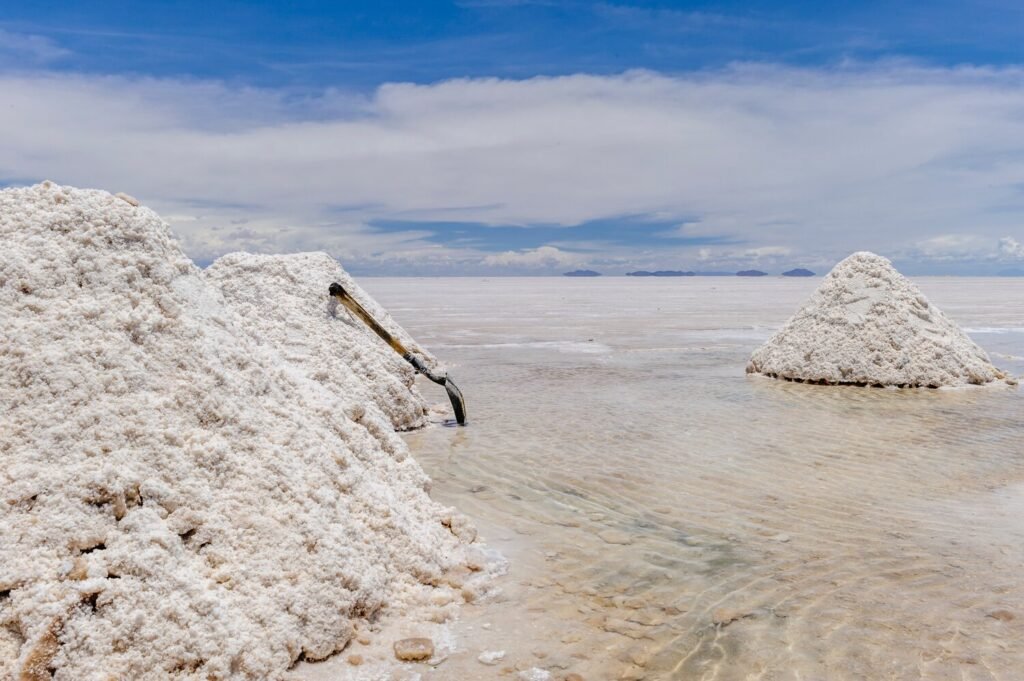
Lithium is best known for its industrial and technological applications, particularly in lithium-ion batteries, glass, and ceramics. However, its potential role in human health has sparked increasing scientific and public interest.
While lithium is not officially classified as an essential nutrient like calcium or iron, research suggests that trace amounts of lithium may play a supportive role in brain function, mood regulation, and overall health.
Here’s a detailed look at lithium as a mineral for the body, its potential benefits, and how it is obtained.
1. What Is Lithium’s Role in the Body?
Lithium is present in trace amounts in the human body and is found in soft tissues, blood plasma, and brain tissue. It is not stored in the body long-term and is primarily excreted through the kidneys.
Although not essential for survival in the traditional sense, lithium may influence:
- Neurotransmitter activity (serotonin, dopamine)
- Glycogen synthase kinase-3 (GSK-3) inhibition, which plays a role in mood regulation and neuroprotection
- Anti-inflammatory and neuroprotective effects
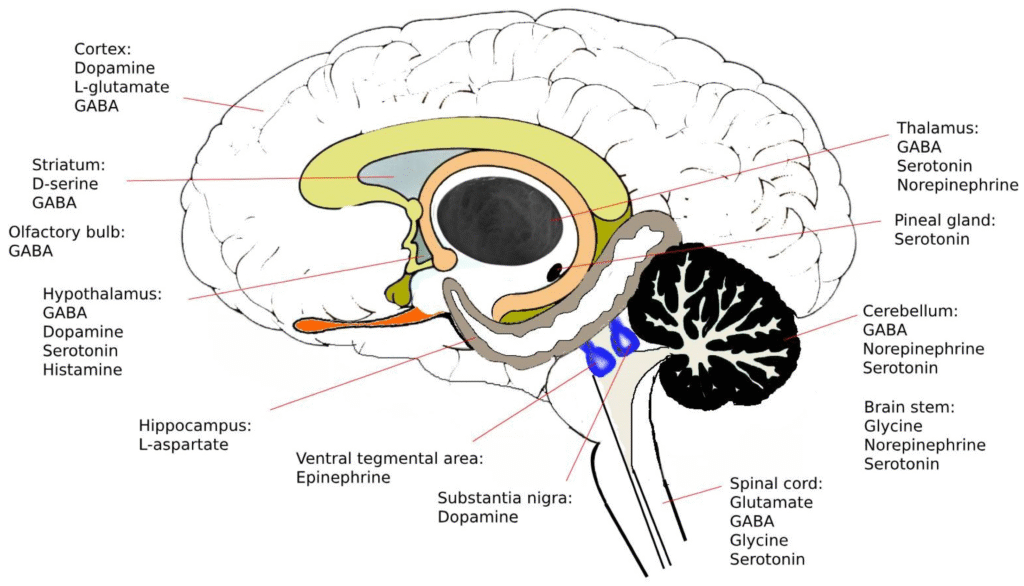
2. Lithium in Medicine: Lithium Carbonate
The most well-established use of lithium in human health is in pharmaceutical form, particularly lithium carbonate, which is used to treat:
- Bipolar disorder
- Major depressive disorder (off-label)
- Mood stabilization and aggression control
At therapeutic doses, lithium helps stabilize mood, reduce manic episodes, and lower suicide risk in psychiatric patients.

3. Trace Lithium in Drinking Water and Diet
Lithium occurs naturally in:
- Mineral water from lithium-rich geological sources
- Soil and food, particularly grains, vegetables, and certain teas
Studies have found that low-level lithium exposure through drinking water may be associated with:
- Lower rates of suicide and depression
- Reduced violence and criminal behavior
- Potential neuroprotective effects against conditions like Alzheimer’s disease

4. Lithium Supplements: Over-the-Counter Options
Some companies market low-dose lithium supplements, such as lithium orotate or lithium aspartate, for mood support and cognitive health.
- Dosage: Microgram levels, much lower than pharmaceutical doses
- Use: Promoted for emotional balance, stress reduction, and brain health
- Safety: Generally considered safe at low doses, but caution is advised for those on psychiatric medications or with kidney issues
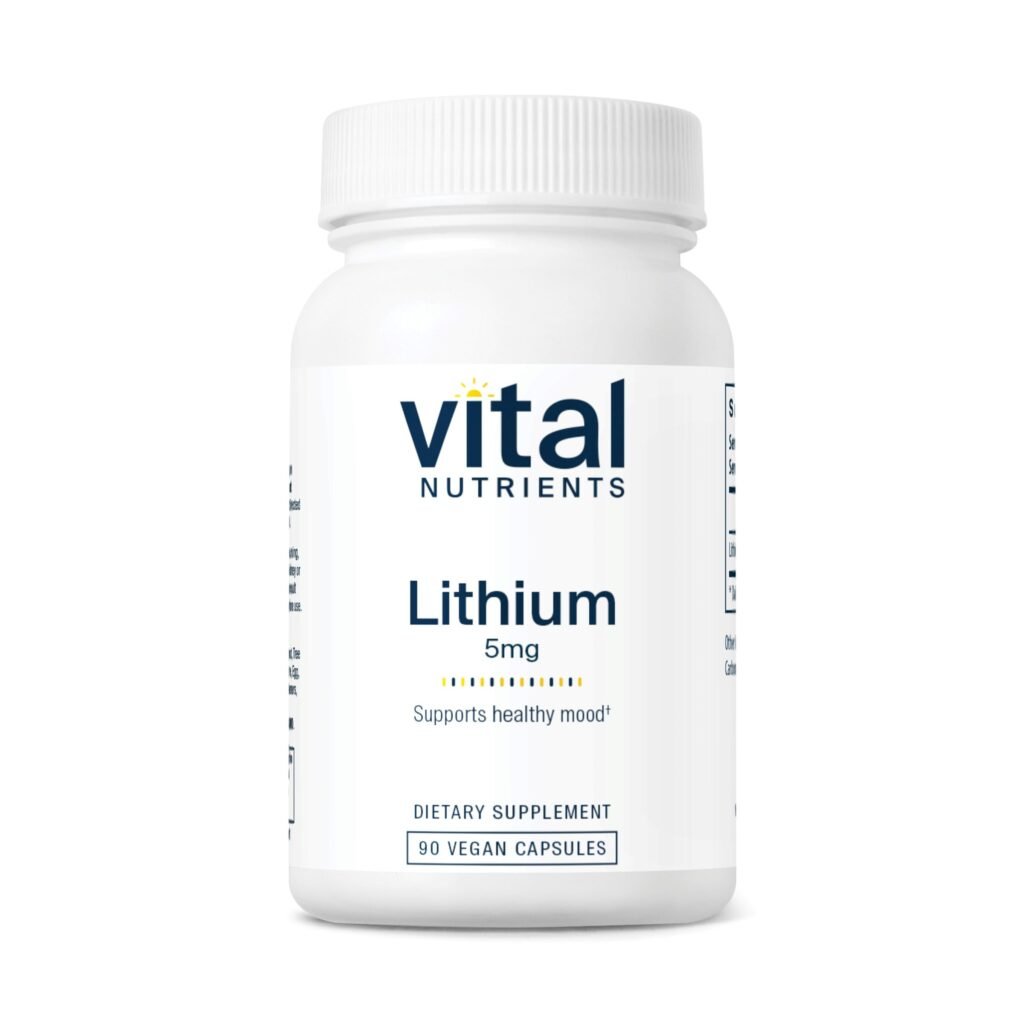
5. Lithium Deficiency: Is It Possible?
There is no official diagnosis of lithium deficiency, but some researchers suggest that low environmental exposure to lithium may be linked to higher rates of mental illness and behavioral issues.
- High-lithium areas: Some regions with naturally lithium-rich water show lower rates of depression and suicide.
- Low-lithium areas: Some studies suggest a correlation with higher rates of mood disorders and neurodegenerative diseases.
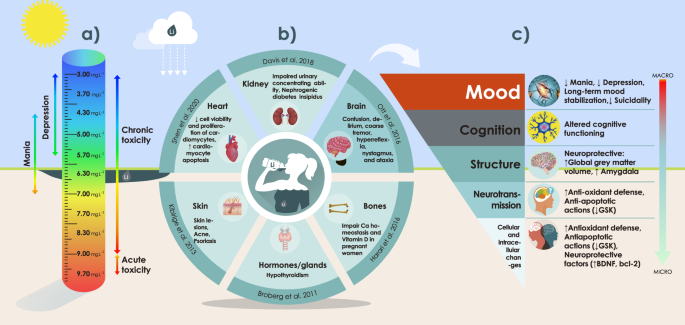
6. Lithium and Neurodegenerative Diseases
Emerging research suggests that low-dose lithium may help protect against:
- Alzheimer’s disease
- Parkinson’s disease
- Amyotrophic lateral sclerosis (ALS)
Lithium may help by:
- Inhibiting GSK-3β, an enzyme linked to neurodegeneration
- Enhancing neuroplasticity and neuronal repair
- Reducing inflammation and oxidative stress in the brain
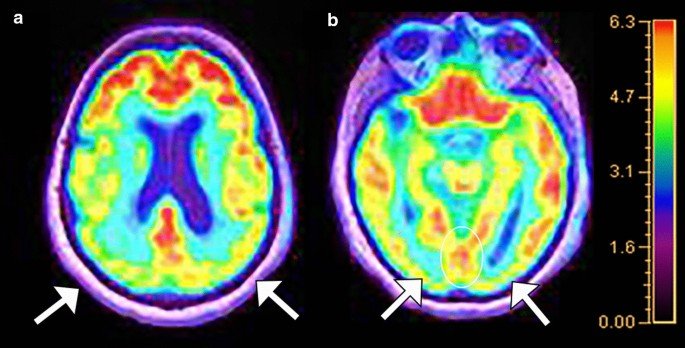
7. Lithium and Longevity
Some population-based studies have suggested that long-term, low-level lithium exposure may be associated with increased lifespan and reduced mortality, possibly due to its anti-inflammatory, mood-stabilizing, and neuroprotective properties.

8. Sources of Lithium in the Diet and Environment
| Source | Lithium Content | Notes |
|---|---|---|
| Mineral water | Varies | Especially in regions with lithium-rich bedrock |
| Whole grains | Moderate | Brown rice, barley, oats |
| Vegetables | Low to moderate | Potatoes, leafy greens, carrots |
| Fruits | Low | Apples, oranges, berries |
| Herbal teas | Low | Some blends may contain trace lithium |
| Lithium supplements | Microgram levels | Not FDA-approved for medical use |
9. Safety and Considerations
- Pharmaceutical lithium: Requires strict medical supervision due to narrow therapeutic index.
- Dietary lithium: Considered safe in natural food and water sources.
- Supplements: Should be used cautiously, especially if taking psychiatric medications or with kidney conditions.
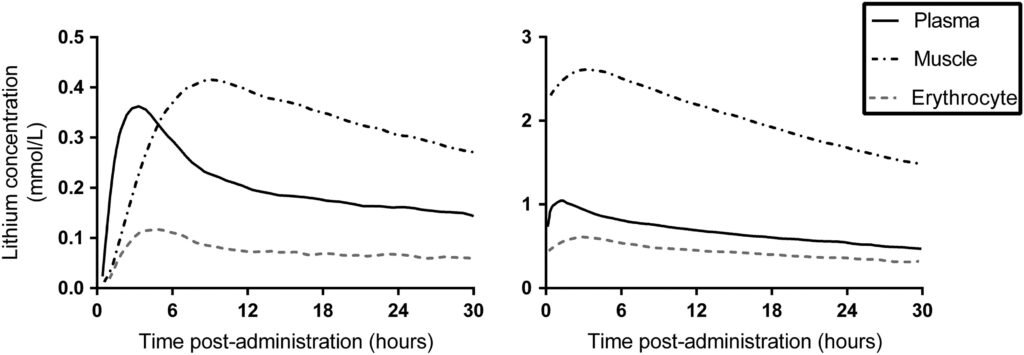
FAQs
Q1: Is lithium an essential mineral for the body?
A1: It is not officially classified as essential, but some studies suggest it may have supportive effects on brain health and mood.
Q2: Can lithium improve mental health?
A2: At low levels (from water or supplements), some research suggests mood benefits. At high doses, it is a prescription medication for bipolar disorder.
Q3: Where can I get lithium naturally?
A3: From lithium-rich mineral water, whole grains, leafy vegetables, and some herbal teas.
Conclusion
While lithium is not classified as an essential mineral in the same way as iron or magnesium, evidence suggests that trace lithium intake may support mental health, mood stability, and brain function. Whether through natural water sources, food, or supplements, lithium is gaining recognition as a micronutrient with potential health benefits.
As research continues, lithium may play a growing role in preventive health, neuroprotection, and holistic wellness strategies.

